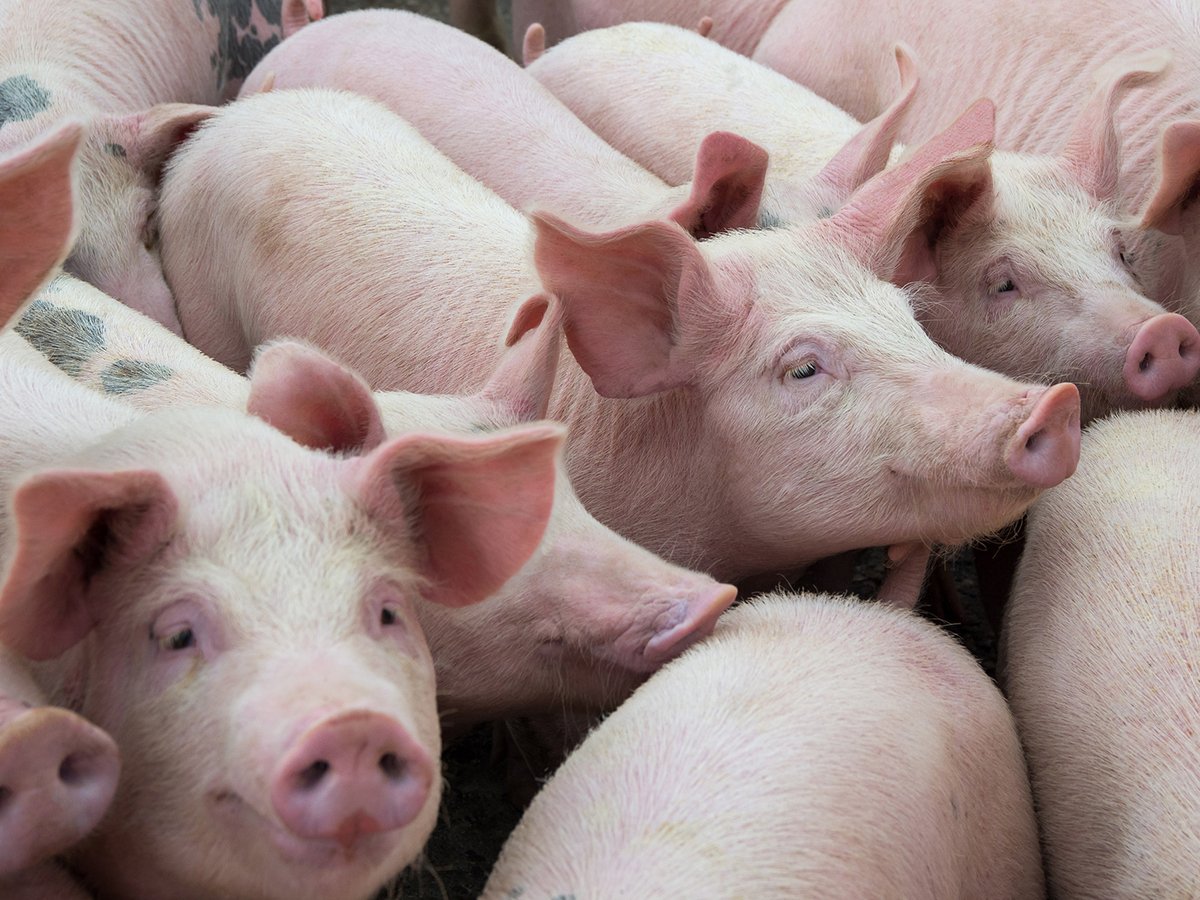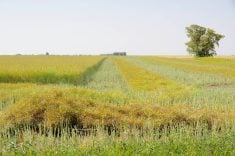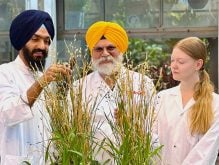Global trade and seed technology were major topics at the World Seed Congress
Western Canadian crops that missed out on rapid improvement during the first wave of genetic modification could see advantages as gene editing spreads.
Canada recently announced rules that allow gene-edited crops without the regulatory burden faced by genetically modified crops.
Other stories in the New Seed Variety Guide 2025:
- What crop traits are on your wish list?
- Rethinking oats
- Early maturing soybeans
- Phenotyping a la carte
- Durum variety designed for higher food fibre
Individual genes already present in the crop genome are turned on and off by editing, whereas genetically modified crops had genes inserted from other species.
Read Also

Quebec pork company calls for transparency around gene-edited pigs
Quebec-based pork company duBreton is calling for transparency around meats from gene-edited pigs on concerns that a lack of mandatory labelling will confuse consumers, and dilute certification claims. The organic sector is also calling for labelling rules.
At the World Seed Congress in Rotterdam this spring, there was lots of discussion about gene editing as countries around the world harmonize their regulations.
Other countries are regulating gene edited seeds as Canada has, treating them similarly to traditionally bred seeds other than if the traits expressed are significantly different or change toxicity levels.
Krista Thomas, vice-president of trade policy and seed innovation with the Canadian Grains Council, says the outcome of the Canadian process yielded a good result for agriculture.
“I think Canada’s regulatory approach for gene editing is the best in the world because it’s pragmatic and it’s science-based and it maintains a product-based approach,” she said at the congress, where she was a panellist in a session on the state of gene editing regulations around the world.
In Canada, Thomas says some crops that didn’t benefit from the earlier phase of genetic modification, like flax and pulses with significant disease challenges, could be improved by gene editing.
Agriculture and Agri-Food Canada recently announced that researcher John Laurie is growing wheat with genes edited to resist drought at the Lethbridge Research and Development Centre.
There are already signs that a lot of innovations will come from new companies, such as Pairwise in the United States.
Pairwise is a six-year-old North Carolina company that employs 120 people and is working to submit early products into the newly created regulations in countries around the world. Much of its leadership comprises former employees of Monsanto.
Pairwise was the first to have a gene-edited produce crop go to market in the United States, with its mustard greens in 2023. The edited crop is less harsh in taste.
“We took something that is highly nutritious and made it more attractive to eat,” says Dan Jenkins, vice-president of regulatory and government affairs for Pairwise.
“The idea is, if we can improve fruits and vegetables, then people will eat more of them,” such as a pitless cherry.
Pairwise has worked on 16 different crops so far. It is also working on higher-yielding corn, with about a 10 per cent increase after only two years of development, says Jenkins.
Seed trade threats
Leaders of international seed organizations and companies warn that decreasing adherence to global trade rules could threaten the seed trade and human food security.
“We look at a map and we see a lot of red flags,” says Marco van Leeuwen, past-president of the International Seed Federation and managing director of the Rijk Zwaan vegetable seed company, speaking at the congress.
“This is preventing us from reaching out to the farmers who have the right to get the quality seed of their choice. For the seed industry and for the farmers of the world, that is a big concern.”
Increased volatility could present opportunities for some farmers as companies look for seed multiplication sites in stable and trade-friendly countries.
Seed production has become more challenging also because of a changing climate and trade risks.
“There’s a fear of scarcity when it comes to seed multiplication,” said van Leeuwen. Professional seed growers are aging and not passing on their role to new generations. Others are deciding the risks around seed production are not worth the threat to a farm’s business.
That’s an opportunity for areas with climate and trade stability.
The move from free trade to tit-for-tat application of sanctions and increased use of non-tariff trade barriers has made business more challenging for seed companies, which have global supply chains.
“We have in our company quite some troubles with exporting seeds from country one to country two just because country two doesn’t like country one,” says van Leeuwen.
Global seed trade has increased as more companies produce seeds and distribute them.
There’s about eight times more seed movement between countries than just 20 years ago, says Michael Keller, executive director of the International Seed Federation. It’s taken work to convince some governments that there’s little risk in allowing seeds to move into their country, he said.
However, Van Leeuwen says the company he works for is buffeted by increasing disputes between countries that decide not to trade with each other or to impose sanctions. He also says that during the COVID pandemic, countries identified domestic food production as a strategic priority. That includes seeds.
That also caused some countries to close their border to some seed imports in an attempt to grow domestic seed supply.
“We breed varieties in country one, we test varieties in all the countries with the appropriate climatic conditions, and then we have to produce seeds, which we do again in other countries,” said van Leeuwen.
Then, those seeds are brought back to one country for packaging and distribution.
A memorandum of understanding was signed at the World Seed Congress involving 13 organizations focused on stopping illegal use of seed.
The group includes the Seed Association of the Americas, of which Canada is a member.
While there is some concern about farmers saving privately developed seed in Canada, the challenges here pale compared to other parts of the world. Canada is unique in that much of the wheat seed grown in Western Canada is from public breeding programs.
There’s more concern with other suppliers in the agriculture industry collecting and reselling seed for their own profit. Those can include cooperatives, grain traders and seed dealers.

Antonio Villaroel, managing director of Gestión de Licencias Vegetales, an organization in Spain, said that of 750 cases his group has taken to court over the past 30 years, only about 12 were farmers.
In Brazil, Diego Risso, executive director of the Seed Association of the Americas, says about 40 per cent of soybeans planted could be illegally grown.
Van Leeuwen, outgoing president of the ISF, says the organization must also clean up activities at the annual congress. Companies and individuals who are found to support the sale of illegal seed won’t be allowed at the event.


















